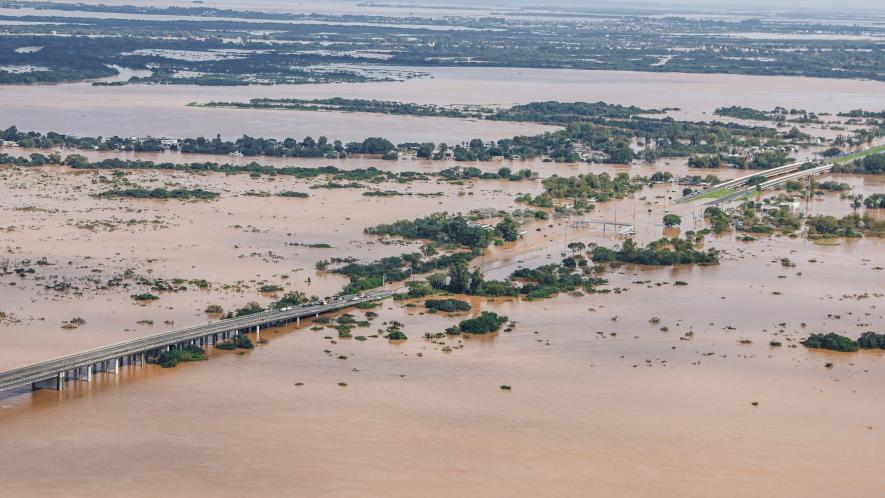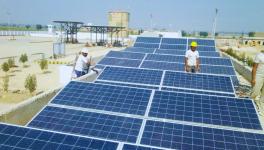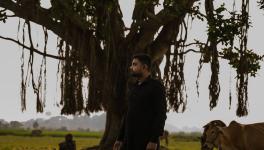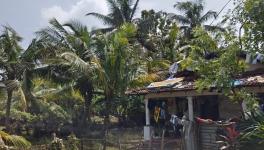Health in Times of Climate Chaos: Floods in Rio Grande do Sul

Flooding in Rio Grande do Sul. Photo: Ricardo Stuckert
Weeks will pass before the waters recede in Rio Grande do Sul, and it remains uncertain when life might return to normal. The recent devastating rains have challenged an entire development model, requiring enormous social and institutional efforts to respond. For now, survival and immediate actions to ensure public health are paramount.
In this interview with Outra Saúde, Sérgio Rossi, coordinator of the Health, Environment, and Climate Change Center at the Center for Brazilian Studies in Health (CEBES), discusses the immediate and long-term public health impacts of the floods.
Rossi highlights the dual burden on health professionals who are both victims and responders, stressing the need for organized support. He outlines immediate health concerns, such as waterborne diseases, injury risks, and the importance of mental health support during the recovery period.
The conversation also addresses the broader implications for social and economic reconstruction, noting significant damage to health infrastructure and the federal government’s efforts to provide financial support. Rossi calls for new health and environmental policies, criticizing the dismantling of environmental legislation and health system defunding under the previous two administrations. He emphasizes the necessity for public health policies to integrate environmental considerations, given the increasing frequency and intensity of climate-related disasters.
The interview concludes with Rossi advocating for a shift towards a new social and economic pact, urging Brazil to adapt swiftly to meet these challenges.
Outra Saúde: First of all, what are the main health warnings for the population of Rio Grande do Sul affected by the rains at this immediate moment?
Sérgio Rossi: Currently, efforts are focused on search and rescue, along with providing shelter and distributing personal hygiene supplies. Next, there are significant health concerns due to contact with floodwaters and mud. Floods increase the risk of diseases like waterborne illnesses, diarrheal diseases, hepatitis A, and leptospirosis, as well as accidents involving venomous animals.
Additionally, there is a risk of food contamination from floodwaters and mud. Contaminated food can transmit diseases, so it is crucial to take extra care in sanitizing, preparing, and storing food. The federal and state governments, social movements, and volunteers are working to ensure safe food supplies.
Regarding tetanus and venomous animals, flood-affected areas are filled with debris carried by the water. Accidents involving metal, wood, or glass debris can cause injuries and lead to tetanus. There’s also a higher risk of accidents with venomous animals seeking dry shelter. The tetanus vaccine is routinely available through the Unified Health System (SUS), and people should inform local health teams about any such accidents to check if a booster dose is needed.
OS: Is it possible to envision the impact this will have on the health system in terms of physical capacities, beds, and workforce? What scenario can be expected for public health in the state after the waters recede?
SR: The assessment of damage and impacts is ongoing and changes daily. Initially, it will depend on evaluating the damage to health facilities themselves. Many health facilities and services have been affected by the floods. Assessing this damage and surveying health demands and sanitary conditions in the affected regions will help estimate the short-, medium-, and long-term effects on public health and the health system’s demands.
People with chronic health conditions may experience worsened health due to multiple factors: the physical and mental impacts of the disaster, damage to health services and equipment, and limited access to medicines and assistance provided by local health teams.
Regarding the health workforce and teams in the affected regions, it’s important to note that health professionals are doubly affected. They are part of the affected population and are also responding to the crisis. Therefore, it’s crucial to organize and develop support actions for health workers themselves.
OS: Apart from the obvious health issues, do we have an epidemic, if we can call it that, of mental health problems?
SR: This is an important question. While disasters undoubtedly impact mental health, we shouldn’t view this as an “epidemic” where everyone affected by the floods will fall ill or develop a mental disorder.
Disasters and public health emergencies do affect mental health, and the floods in Rio Grande do Sul are no exception. It’s essential to develop mental health and psychosocial care actions for those affected by this disaster.
Most people will exhibit psychological symptoms that are normal reactions to an abnormal situation, not necessarily constituting a mental disorder. For this population, the implementation and re-establishment of basic services under various public policies will support emotional stabilization.
A smaller portion of the population may develop illnesses or conditions requiring more specific mental health and psychosocial care. These individuals might have a history of mental illness, be particularly vulnerable, or have not received adequate care and support before.
It’s important to remember that the mental health impact on affected populations is directly linked to the disaster response actions. Therefore, mental health and psychosocial care strategies must be integrated into all response efforts.
The disaster response must include organizing and structuring mental health and psychosocial care actions at every stage. These strategies should focus on promoting health, providing support, protecting dignity, and re-establishing autonomy and rights, especially for the homeless population.
Read more: The principle of Landless Solidarity and the recent rains in Rio Grande do Sul
OS: You’ve written an article defending an environmental health agenda, including mentioning the National Environmental Health Policy project, which was drawn up during the first Lula governments. What is this policy exactly?
SR: The National Environmental Health Policy can be understood as a proposal aiming to promote health through integrated and coordinated actions that address the socio-environmental determination of health.
OS: Why hasn’t this project progressed in all these years?
SR: There are several reasons for this policy remaining a proposal. Over the past eight years, there have been significant setbacks in the role of the state in social development and addressing inequalities. Social and environmental agendas have faced profound setbacks with the rise of right-wing and far-right political forces.
Policies in the social, health, and environmental sectors have been dismantled and their budgets reduced. The role of the state was increasingly minimized during this period. Other discussions were used to obscure the dismantling of the state that occurred. I believe that the combination of these factors explains why we haven’t been able to move forward.
OS: Is it necessary to create some kind of secretariat or body within the state structure to deal with such a policy? Doesn’t the Secretariat for Health and Environmental Surveillance already cover this area, or are we talking about a structure with broader remits?
SR: Within the Ministry of Health, it’s not necessary to create a new body or secretariat. The Health and Environmental Surveillance Secretariat (SVSA) already handles this through the Department of Environmental Health Surveillance and Workers’ Health (DSAST). One initiative by the Lula government and Minister Nísia Trindade’s administration was to add “Environment” to the Secretariat’s name, highlighting the importance of environmental factors in health policy.
However, this commitment must be translated into actions and policies to strengthen this agenda at the state and municipal levels. This requires an integrated approach between health vigilance and health care.
OS: Will health authorities need to engage in debates beyond their traditional scope? Specifically, will health policy planning increasingly have to address economic, environmental, and social issues?
SR: Absolutely. The COVID-19 pandemic has already highlighted this necessity. The debate on climate change and its impact on health is not new. Events like those in Rio Grande do Sul demonstrate that climate denialism, the reduction of the state’s role, and fiscal austerity policies come with a high human and social cost. They cost lives.
OS: Could what is happening in Rio Grande do Sul be definitive proof of the unfeasibility of fiscal austerity policies, especially when applied to essential areas like health?
SR: There’s no doubt about it. Fiscal austerity policies aim to cut the budget for social areas and public policies. As a result, the entire system of public policies for health, the environment, social protection, and civil defense, among others, is compromised or weakened. Without this state apparatus, disasters like the current one have more severe and prolonged effects and repercussions.
The interview with Sérgio Rossi was conducted by Gabriel Brito, and published in Portuguese on Outra Saúde.
People’s Health Dispatch is a fortnightly bulletin published by the People’s Health Movement and Peoples Dispatch.
Get the latest reports & analysis with people's perspective on Protests, movements & deep analytical videos, discussions of the current affairs in your Telegram app. Subscribe to NewsClick's Telegram channel & get Real-Time updates on stories, as they get published on our website.
























